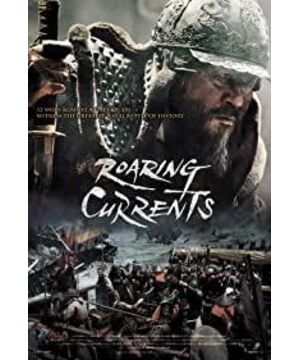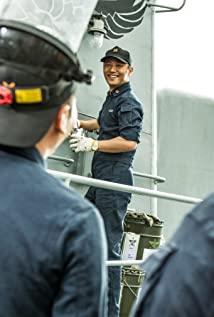A few days ago, I was fortunate enough to go to the cinema to watch the recently hit Korean movie "Ming Liang" with a group purchase of friends. After watching, in Children Gor's mind, the thoughts that aroused were far more than the movie itself—— Keyword: "Sea Battle".
The word "sea battle" should have a complicated taste in the hearts of the people of China, Japan and South Korea. is love? is hate? pregnant? Are you sad? Because for these three countries, there is a major naval battle, which affects the fate of the country and the nation, and has extraordinary significance.
China, Japan and South Korea each have a naval battle that determines the fate of the country: The Sino-Japanese naval battle, the Japanese-Russian naval battle against Malaysia.
There are many film and television works in the three major naval battles:
Mingliang Sea Battle: 1962, 1971 Mahatma Yi Sun-sin, 2005 Tianjun, 2014 Mingliang
Jiawu Sea Battle: 1962 Jiawu Storm, 1992 Beiyang Navy (TV series), 2012 Jiawu Sea Battle
Tsushima Sea Battle 1969, 1983 Japan Sea Battle, 2011 Sakagami Cloud (TV series)
The popularity of "Ming Liang" in mainland China is indeed a bit unexpected. According to statistics, only 21 Korean movies have been released in mainland China in the past ten years, with box office All are average, and there are many deletions, and "Ming Liang" is no exception. It is said that 20 minutes have been deleted, and I look forward to the release of the full HD version.
"Ming Liang Sea Battle" can be described as a box office miracle. It is the first local film in Korean film history to break the record of 10 million viewers. In 2009, "Avatar" created 13.3 million people. But the 17.6 million hits of "Ming Liang" beat "Avatar", which makes the Korean film industry proud. In a country with a population of 50 million, 17.6 million viewers meant that 2 out of 3 adults saw the film. In fact, from children to the elderly, the general public and even the president, have watched "The Battle of Mingliang Sea".
Just imagine, it would be a miracle if there was a domestically produced movie in China with such a high percentage of viewers (last year's "Thai Embarrassment" was only 38.9 million). I heard that many Korean parents brought their children to the theater to watch this film in order to give their children a patriotic education. It is conceivable what position the Mingliang Sea Battle or General Yi Sun-shin holds in the hearts of the Korean people.
Since "Ming Liang" is a movie with a historical theme, of course, the plot cannot bypass the historical figure, General Yi Sun-shin.
To put it simply, Yi Sun-sin is one of the few North Koreans who can be mentioned in world history. It is because of his achievements and contributions in the history of naval warfare and the history of ships - the manufacture and application of turtle ships in the Imjin Patriotic War in Korea.
The famous deeds of Yi Sun-sin, throughout the 7-year War to Resist Japan and Aid Korea, actually still have a lot to show, and this film only extracts the episode of the Mingliang Sea Battle, the significance can be imagined - Mingliang Sea Battle in South Korea Historians are considered to be "if you were defeated in Mingliang, there would be no South Korea today" - although this view may be objected to in China or Japan, but at least for the Korean nation, the Battle of Mingliang is indeed a battle A battle to change the fortunes of the nation.
Objectively speaking, in this battle, Yi Sun-sin tactically used favorable terrain and currents to successfully block the Japanese army and make the Japanese army retreat in spite of difficulties; strategically prevented the encirclement of the Japanese navy and army, successfully preserved the Korean navy, and at the same time effectively cut off the Japanese army from the enemy. The supply of the Yellow Sea to the Battle of Jishan made the Japanese army finally retreat.
Yi Sun-sin defeated the Japanese pirates with 330 ships with 12 ships, which is indeed a classic in the history of naval warfare. But to say how successful this battle was, at most it would have to sink some closed ships, which is far from the scale and record of Jiawu or Tsushima.
However, Mingliang's victory, more importantly, greatly boosted the morale of the North Korean military and civilians, so that the Korean military and civilians have the confidence to continue the war of resistance and finally achieve the final victory. In this sense, it does have an impact on the country's fortunes.
Therefore, the plot of this film is very simple. In a word, it starts from the re-activation of Yi Sun-sin and ends at the defeat of the Japanese army in Mingliang.
However, looking at the easter eggs at the end of the film, it is estimated that the trilogy of Yi Sun-shin will be filmed. The first is "Ming Liang Sea Battle", which tells about the difficult rise; the second is the prequel "Hanshan Island Sea Battle", which is estimated to tell the story. The mighty turtle ship; the third "Rolling Sea Battle" tells the story of the final victory of the Anti-Japanese War and the tragic sacrifice of Yi Sun-sin.
(I would like to see how the film describes me, the Daming Navy, and who will play the role of Chen Lin, who was the chief soldier of South Australia at that time, and who will play Deng Zilong? Do they speak Hakka or Hokkien, hehe)
I have to say that when Koreans make costume films, they put a lot of effort into this area. The costumes are beautiful, the props are exquisite and meticulous, and the characters' movements are exquisite. Whether it is the Japanese devils in "Ming Liang" or the Manchu Qing soldiers in "The Final Weapon: Bow", they are very interesting, much more interesting than our own domestic ones.
Especially the Manchu Qing soldiers in "The Ultimate Weapon: Bow", they are the Eight Banners cavalry that swept across East Asia face to face. They are fierce, barbaric, good at fighting, and enduring hardships. The dubbing of Nima is still Manchu. ~! !
Looking forward to the release of Director Kim's next two films~~
View more about The Admiral: Roaring Currents reviews











